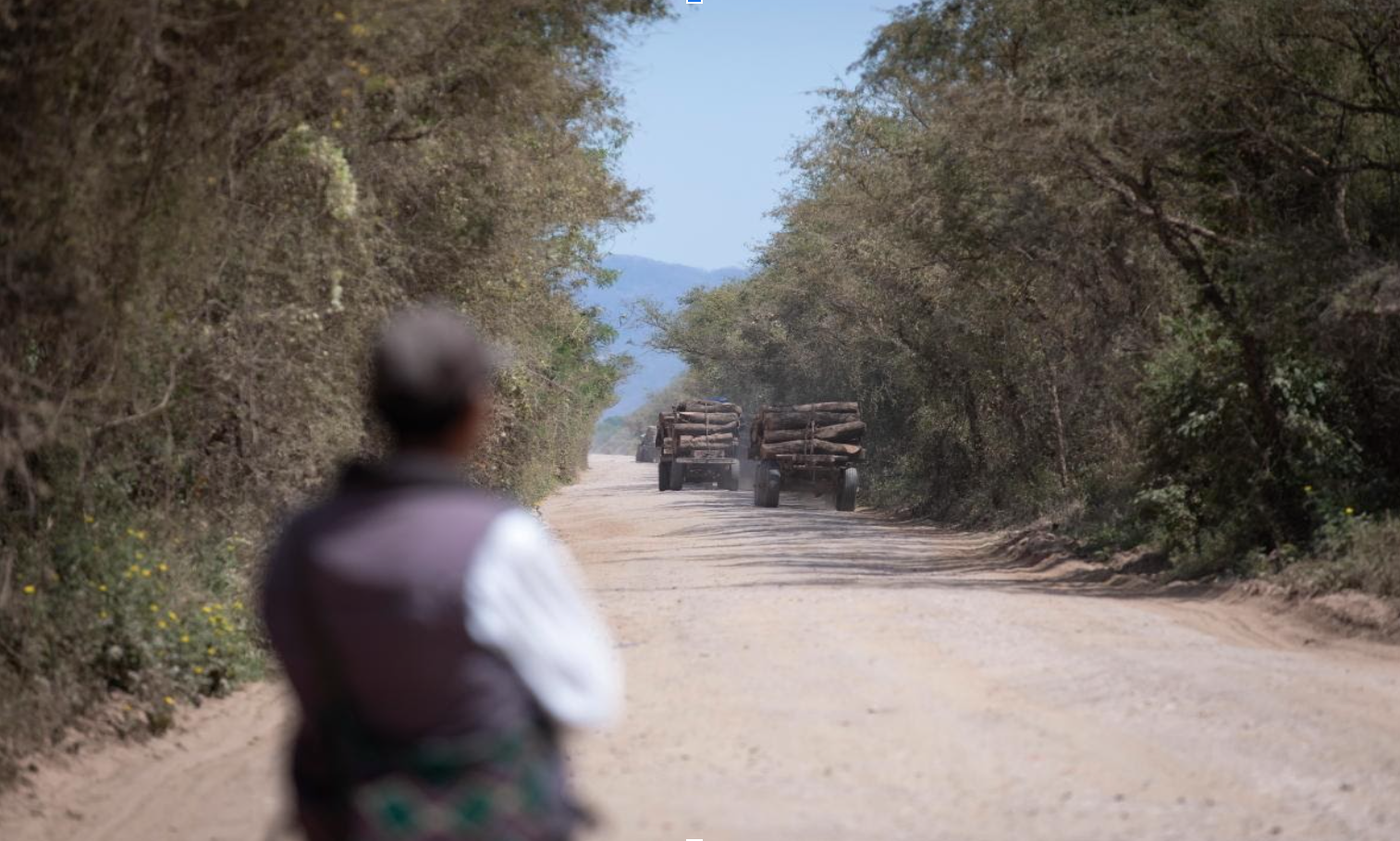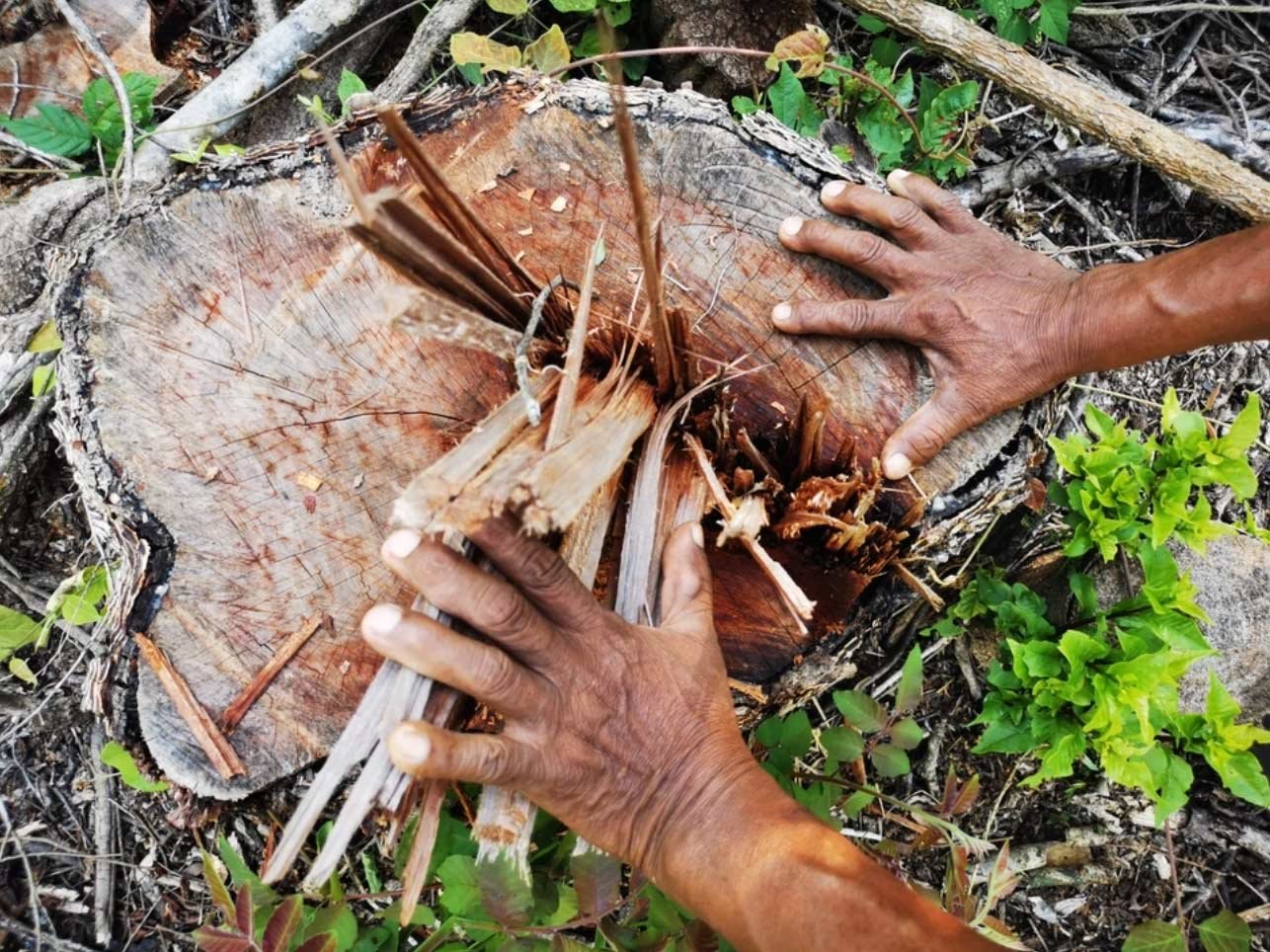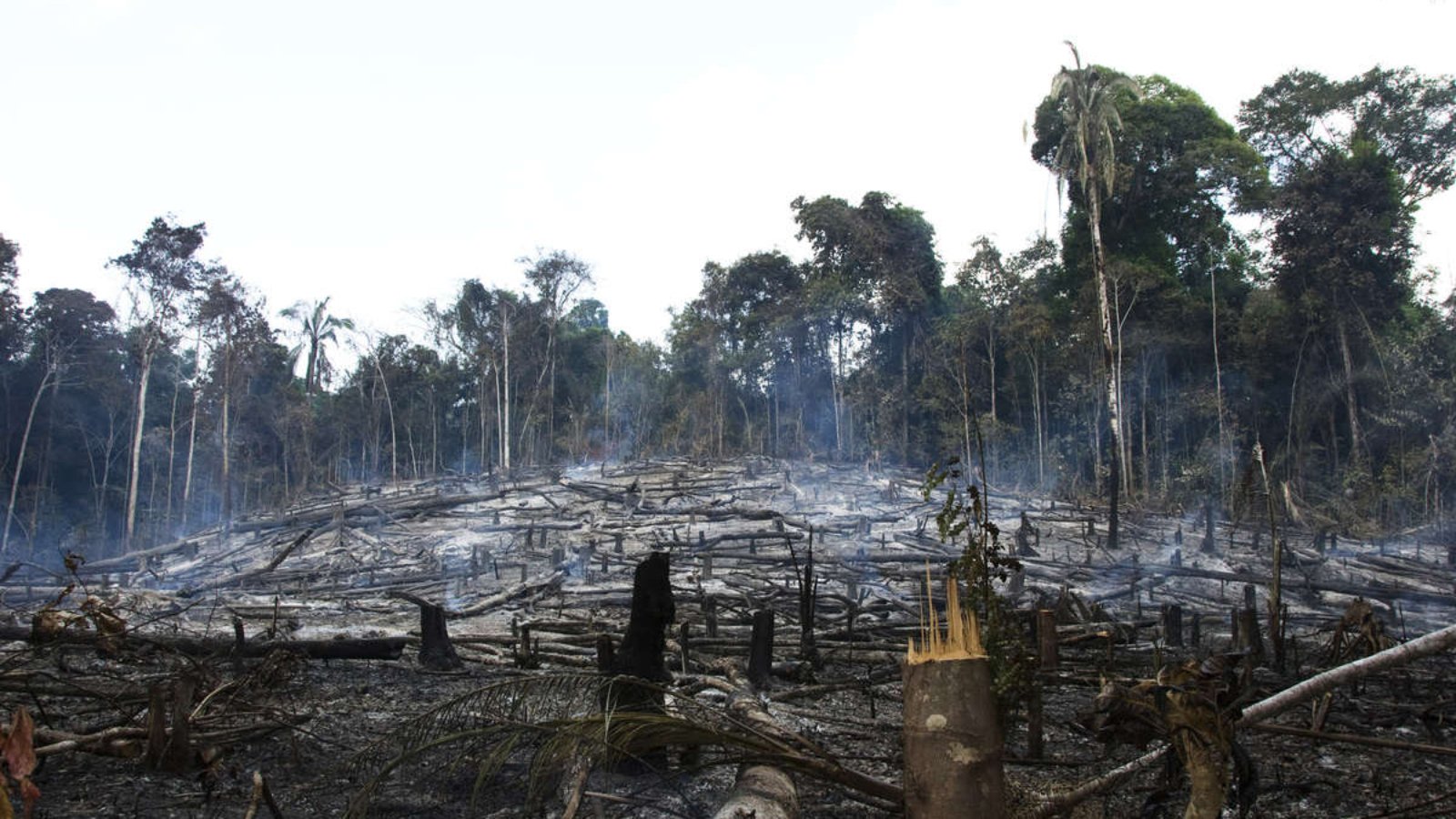Deforestation continues in Salta in territories of indigenous communities in the Tartagal area. There are precautionary measures, there are judicial rulings that are not fulfilled. The police do not respond to complaints or calls from communities trying to protect these territories.
We give all the support to the families and @radiocomunitarialavozindigena who try to stop the destruction of their territories and natural wealth.
More than two years after the judicial decision, the impact on the Wichí territory continues. “We were there until March 15 and the logging was constant and permanent,” Kraft told Salta / 12 when recounting his experience. He affirmed that despite the complaints that were presented to the Police, there was no intervention and they only told the community “to organize among themselves.”
One of the topics of the documentary points to the recovery made by the chief Juayuk (or Juan de Dios López, according to the Western name), who “recovers trees cut from the roots with chainsaws, or trees burned to their roots,” said the filmmakers. This is possible due to the ancestral knowledge of Juayuk, since “it can combine species by hybridizing new seeds in these roots that still have life”.

“The ancestral Wichí culture is on the verge of fading into the darkness of oblivion.” The phrase comes from the synopsis of the documentary Whispers in the Wind, directed by Argentine Martin Kraft and produced by Belgian François Toussaint, both residents of Spain. It summarizes, through the experience of the Territorios Originario Wichí community, located at kilometer 3 of National Route 86, in the department of San Martín, the situation that this original town is going through throughout the province.
In the eyes of the filmmakers, the event emerged immediately. In mid-March, during the filming, they would choose a place with mountains to take pictures. When they returned the next day, they saw the devastation of the place as a result of illegal logging in a territory recognized for ancestral use by a survey of the National Institute of Indigenous Affairs (INAI).
The fact was already denounced before the Justice in 2019 asking that an action be ordered to prevent the clearing of the 593 hectares of original territory. On December 30, 2019, the Justice of Tartagal granted the precautionary measure presented by the lawyer Cecilia Jezieniecki ordering those who carried out actions that affected the territory to refrain from continuing with that activity.
The devastation referred to the fencing of the territory, as well as the entry of cattle and the felling of wood. The Tartagal judge Griselda Nieto ordered the suspension of all “those activities / actions that alter or modify the factual situation in the Territory that is of community occupation and is so until the main trial, under warning of judicial disobedience.” At that time, in addition to giving intervention to a Justice of the Peace of the jurisdiction, it was decided to also give rise to the Ministry of the Environment of the province, “for the extraction of wood.
We give all the support to the families and @radiocomunitarialavozindigena who try to stop the destruction of their territories and natural wealth.

More than two years after the judicial decision, the impact on the Wichí territory continues. “We were there until March 15 and the logging was constant and permanent,” Kraft told Salta / 12 when recounting his experience. He affirmed that despite the complaints that were presented to the Police, there was no intervention and they only told the community “to organize among themselves.”
One of the topics of the documentary points to the recovery made by the chief Juayuk (or Juan de Dios López, according to the Western name), who “recovers trees cut from the roots with chainsaws, or trees burned to their roots,” said the filmmakers. This is possible due to the ancestral knowledge of Juayuk, since “it can combine species by hybridizing new seeds in these roots that still have life”.
In Kraft’s understanding, the devastation of the original forest “is coordinated by timber producers who attack the communities.” He also reported on a strategy that has always been used in the area and is the land registry title, sometimes even imperfect, to appropriate the territories “and plant soybeans.”
In the territories, different measures are carried out to try to displace the communities, such as logging, setting fire to wood, or using tricks such as giving the land in loan (which implies that whoever is in the firm territory and with it transfers the ownership of the land to the appropriators), and if all else fails, summon other families from outside the community to initiate an internal conflict.
“We understand that the province’s business is soybeans and not look further,” said Kraft, stating that little is taken into account of the fact that this is a declared area of health emergency and “very sensitive.” “They do not understand the level of social and health disaster that occurs in a short time,” added the audiovisual producer.
The documentary in many aspects tries to rescue the link between the Wichí culture and nature, which is also part of the culture of all indigenous peoples. “There is no other than to make a complaint for the violation of human rights in the area,” said Kraft, stating that one of the objectives that accompanies the documentary is to generate an overcoming proposal to make the territory led by Juayuk, a nature sanctuary . “But they are looking at where we wanted to do the project,” he said.

Guarantee of impunity
“For a long time the Community has been constantly suffering from the logging of its native forest. People enter the territory and do the mountain, they do it generally at night, on Saturdays and Sundays. They cut down all night and then retreat with loaded trucks. They are slowly predating the native forest and the Community, ”said Jezieniecki, a lawyer for the Community, in a document released by ENDEPA.
“All these intrusions imply a violation of the territorial rights of the original Community, which has already made several complaints to the police, to the Ministry of the Environment of the Province of Salta, but never received any answers. The rural police are not going to check the logging that they denounce and the Ministry only made an act, “he added.
The inspection report No. 042-000942 carried out by the Ministry of the Environment, on September 6, 2018, states that “the Rural and Environmental Police No. 4 of the town of Tartagal, having verified the existence of cut specimens of cebil and palo blanco in the geographic coordinates referred to “.
Juan de Dios López noted with concern that “logging forces us to withdraw from our territory and abandon what is ours, abandon our sacrifice and we don’t want that. We made many complaints because we know about the situation and we want the clearing in indigenous territory to stop. For us the mountain is vital, it is to be close to nature, respecting the call of mother nature, living in a healthy way ”.
Regarding the constant subjugation to which they are being subjected, López affirmed that “these actions are destroying our culture and are causing the division of our forces. The indigenous people for decades have strengthened the territory, strengthened the trees and now these companies send bulldozers to subjugate the entire indigenous territory. We want to protect our territory, we seek that our rights are fulfilled. We are cultural, the land is our life ”.
Published by:

